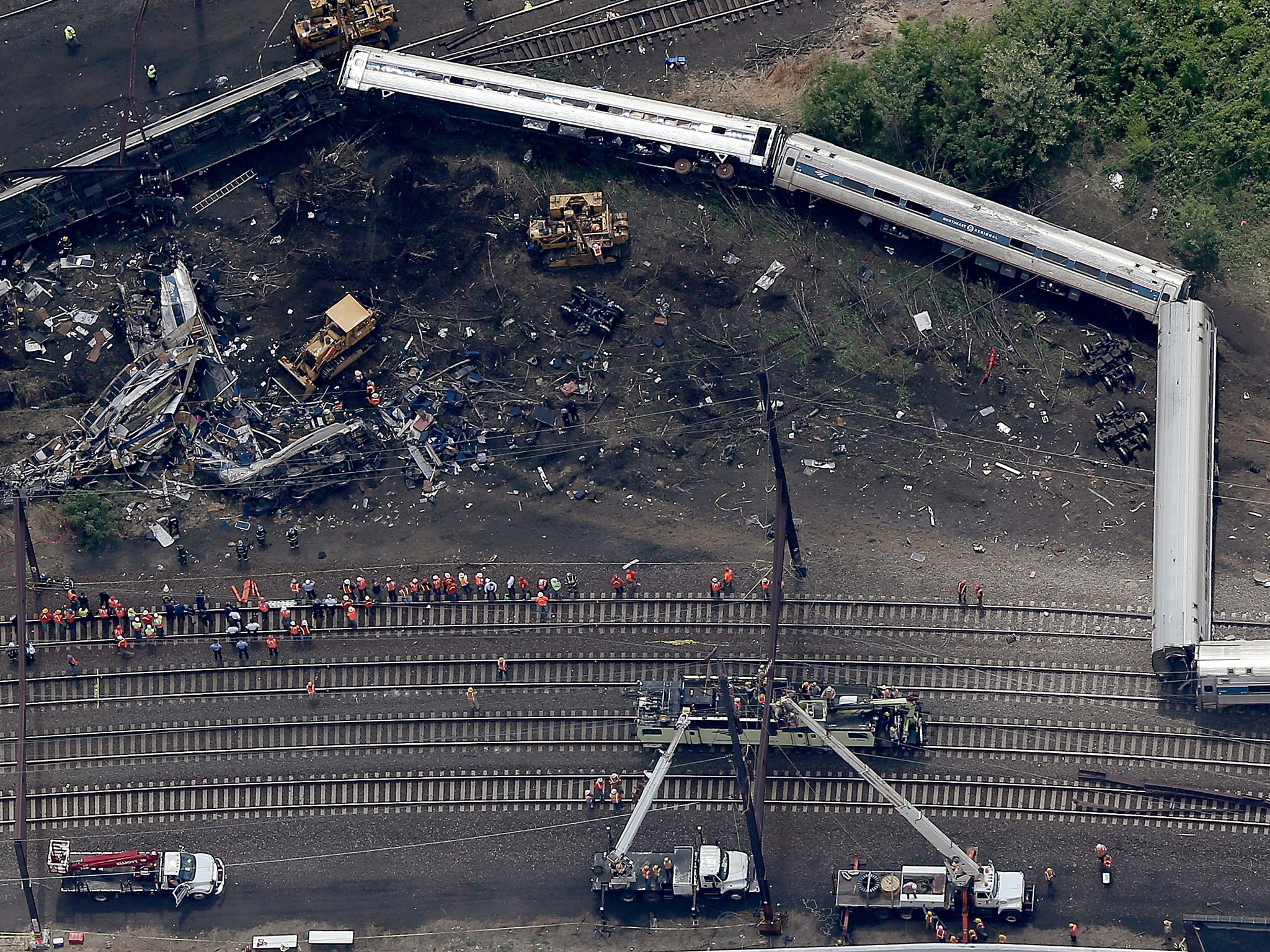Amtrak engineer 'distracted by radio traffic' before deadly derailment, investigators say
The NTSB is expected to vote on a final cause of the crash on Tuesday

Your support helps us to tell the story
From reproductive rights to climate change to Big Tech, The Independent is on the ground when the story is developing. Whether it's investigating the financials of Elon Musk's pro-Trump PAC or producing our latest documentary, 'The A Word', which shines a light on the American women fighting for reproductive rights, we know how important it is to parse out the facts from the messaging.
At such a critical moment in US history, we need reporters on the ground. Your donation allows us to keep sending journalists to speak to both sides of the story.
The Independent is trusted by Americans across the entire political spectrum. And unlike many other quality news outlets, we choose not to lock Americans out of our reporting and analysis with paywalls. We believe quality journalism should be available to everyone, paid for by those who can afford it.
Your support makes all the difference.Federal officials investigating the May 2015 Amtrak derailment that killed eight people have reportedly determined the engineer driving the train was distracted by radio traffic when the accident occurred.
National Transportation Safety Board investigators said that the engineer, Brandon Bostian, had been distracted when he heard reports of "rock-throwing" over the radio dispatch moments before the 12 May 2015 crash in Philadelphia, at a hearing Tuesday afternoon.
“Excluding all the other suspects that we looked at, the best we could come up with was that he was distracted from this radio conversation about the damaged train and forgot where he was,” said NTSB chairman Christopher Hart.
The Associated Press said that the NTSB also laid blame on the railroad industry's failure to adopt Positive Train Control (PTC) technology, which slows train speed if they are traveling over the speed limit. Were the technology installed on the tracks involved in the crash, "we would not be here today," said NTSB investigator Ted Turpin.
Mr Bostian was operating the train, traveling from DC to New York, when it hit a curve at 106 mph - more than double the authorised speed limit. NTSB officials had previously said that the engineer had been distracted, but had not mentioned what caused it. Investigators reportedly ruled out that Mr Bostian had been using a mobile phone or had been intoxicated at the time of the crash, that left more than 200 passengers injured.
“He went, in a matter of seconds, from distraction to disaster,” said Robert Sumwalt, an NTSB member at the hearing.
Officials released more than 160 documents that included an interview with Mr Bostian where he said he had a “dream-like” memory of the crash.
Mr Bostian was suspended without pay in the wake of the crash. He did not attend the hearing.
Amtrak issued a statement saying that the company has “taken full responsibility for and deeply regrets the tragic derailment”, but noted that many of their tracks in the Northwest Corridor are already equipped with PTC technology. The track that had been used at the site of the Philadelphia derailment had PTC technology, as well, but it was being tested at the time, according to the AP.
The vice chairman of the NTSB, T Bella Dinh-Zarr, said that much of the blame should be shifted away from Mr Bostian and onto the much needed technology.
“Eight people have died, dozens more have been injured - life-changing injuries - because the government and industry have not acted for decades on a well-known safety hazard,” Ms Dinh-Zarr said. “I ask: Why does our probable cause focus on a human's mistake and what he may have been distracted by?”
Still, one survivor of the crash, New Jersey-native Duy Nguyen, was shocked that the crash resulted from the distraction of the train's engineer.
“The part that doesn't make sense is how does one accelerate when you're distracted?” Mr Nguyen said. “The inclination is to slow down.”
“Part of me is mad at Amtrak, he added. "Part of me is resigned that there's something that happened and you have to endure and survive and move on.”
Join our commenting forum
Join thought-provoking conversations, follow other Independent readers and see their replies
Comments